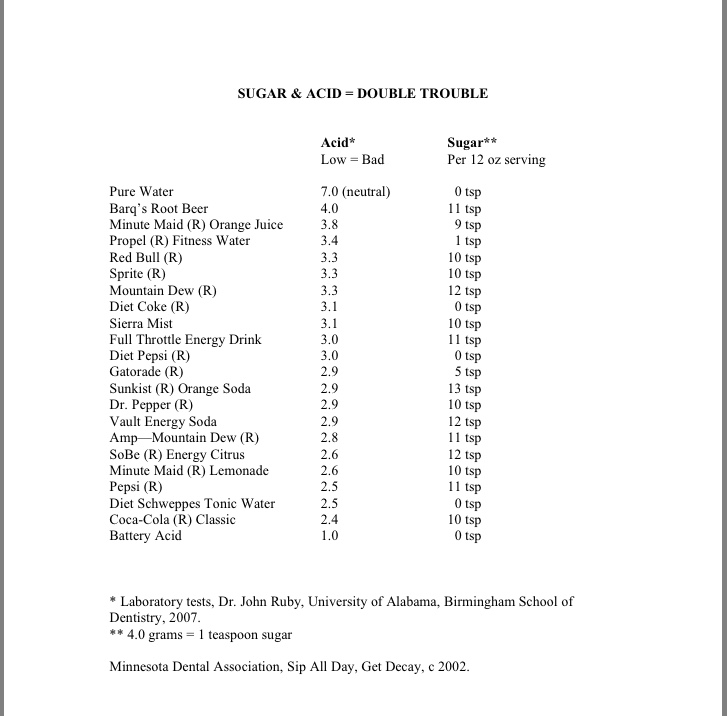Side Effects of Soda
April 8, 2015
Soda is one of the most consumed drinks in the United States. Many people drink a variety of carbonated beverages without realizing the health effects.
The pancreas is notified once a person drinks soda and begins to create insulin because of the amount of sugar in the drink. Blood sugar levels will rise and the liver responds to the insulin and turns the sugar into fat for storage.
“Sip all day, get decay” is a common saying used by dentists. Sugar and acid contained in soft drinks destroy tooth enamel. The sugar in normal soda and diet soda attacks the teeth each time a person takes a sip. Young children and teens are especially vulnerable to tooth decay because there tooth enamel is not fully developed.
The majority of soda’s have high fructose corn syrup, which is associated with a risk of metabolic syndrome. This syndrome is a condition that heightens the risk of diabetes and heart disease.
Dr. Frank Hu, Professor of Nutrition and Epidemiology at Harvard School of Public Health, provided scientific evidence that those who reduce soda consumption will reduce the chances of obesity and diseases related to obesity. The risk of obesity is increased 1.6 percent when soda is regularly consumed. Soda can also prevent healthy bones and it usually lacks calcium and other healthy nutrients.
It can be hard to part from soda, but health effects prove the negative risks to drinking it. Some of which many people do not even realize when they frequently drink their beverage of choice.

This chart names multiple drinks such as sodas and energy drinks and gives the amount of sugar and acid for each of them.











